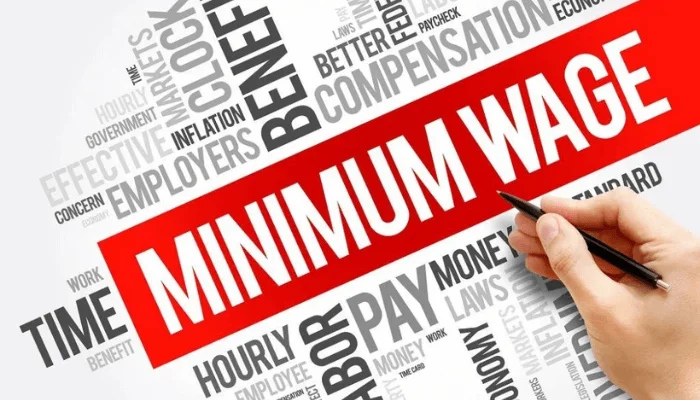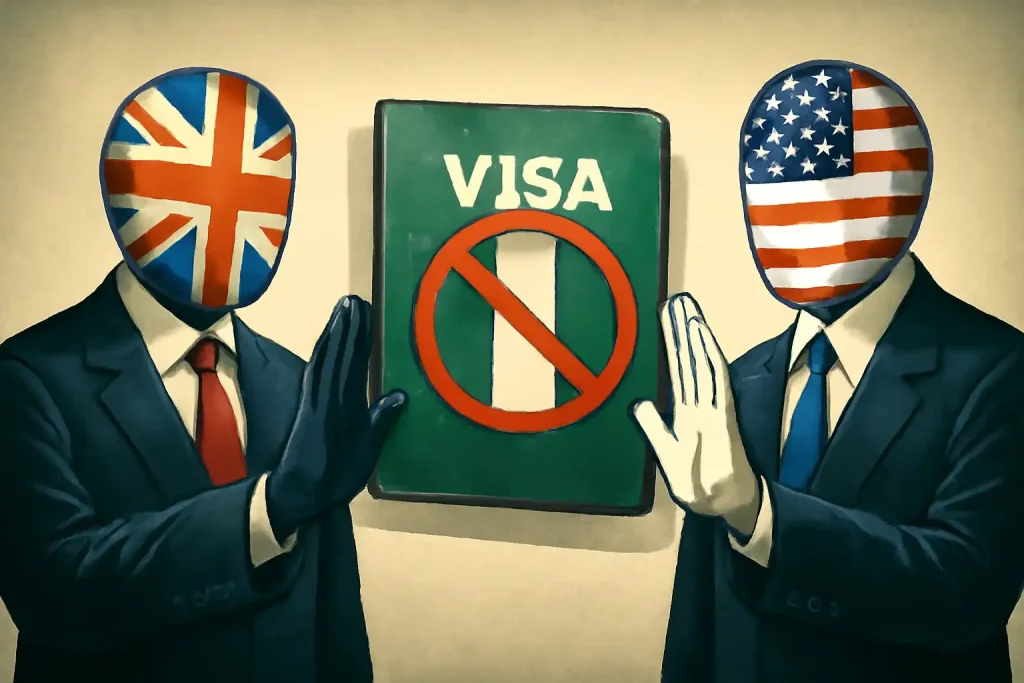Private employers paying below 70K risk jail term under the new wage regulations, sparking a nationwide conversation on labor standards and employer obligations. The government has set a clear standard, aiming to enhance the living conditions of workers.
However, with this bold move comes a wave of questions and concerns regarding the impact on businesses, the economy, and inflation.
This article will explore who is exempted from paying the new minimum wage, the implications of this law on the economy, and the challenges of enforcing the policy in a high-inflation environment.
What Does the Law Say?
The introduction of the 70K minimum wage law marks a significant shift in labor policy. Employers in the private sector who fail to comply face stiff penalties, including jail terms.
The government is determined to ensure fair wages, but with this decision comes the responsibility of understanding how it applies to different sectors and the ripple effect it might have on various industries.
Private employers paying below 70K risk jail term if they fail to adhere to the new standard. This law is seen as a way to protect workers from exploitation, especially in sectors where labor has historically been underpaid.
By enforcing this wage floor, the government aims to uplift the living standards of many workers who struggle to meet basic needs.
Types of Employers Exempted from Paying the Minimum Wage
While the law clearly sets a 70K minimum wage requirement for most employers, certain types of employers are exempt from paying this wage. These exemptions are put in place to account for unique business conditions and specific industries that may struggle to meet the new standard.
1. Small-Scale Enterprises
Small-scale enterprises are often exempt from paying the new minimum wage because their limited financial capacity may not support such payments.
These businesses, typically defined by their low annual revenue or workforce size, might experience severe financial strain if forced to comply with the 70K minimum wage. Most small-scale businesses already operate on tight budgets, and many fear that this new wage could push them out of business.
2. Non-Profit Organizations
Non-profit organizations, particularly those reliant on donations and government grants, are another category of employers that might be exempted from paying the 70K minimum wage.
Because non-profits are mission-driven rather than profit-driven, their primary focus is on achieving social goals rather than generating revenue. As a result, they often have limited financial resources, and paying the new minimum wage could divert funds from their charitable activities.
3. Internships and Apprenticeships
Another exemption applies to internships and apprenticeships, where individuals receive training and experience in exchange for limited compensation.
The rationale behind this exemption is that the individuals in these programs are not full-time workers but rather trainees. They are primarily there to learn and gain skills, so they may not be eligible for the same wage standards as regular employees.
4. Part-Time and Seasonal Workers
Part-time and seasonal workers, particularly in industries like agriculture and hospitality, may not always be subject to the 70K minimum wage due to the temporary nature of their employment. Many businesses in these sectors hire workers for specific seasons or events and may argue that paying such a high wage for short-term work is unsustainable.
Negative Effects of the New 70K Minimum Wage on the Economy
While the 70K minimum wage law aims to improve workers’ living conditions, it may inadvertently cause harm to the broader economy.
One of the most significant challenges is its relationship with inflation. Private employers paying below 70K risk jail term, but raising wages across the board could lead to several negative effects, including price hikes, reduced employment, and economic instability.
1. Inflationary Pressures
The most immediate concern is inflation. When wages increase, businesses face higher labor costs, which they often pass on to consumers in the form of higher prices.
This can lead to a rise in the cost of goods and services, effectively reducing the purchasing power of the wage increase. Workers may find that even though they are earning more, their ability to afford basic goods and services remains unchanged due to inflation.
2. Job Losses
Another consequence of the new minimum wage could be job losses. Businesses, especially small and medium-sized enterprises, may struggle to pay their employees the mandated 70K wage and may be forced to cut staff or reduce working hours to manage costs. In extreme cases, some companies might shut down entirely, unable to keep up with the increased wage burden.
3. Impact on Business Investment
Private employers paying below 70K risk jail term, but this policy could deter business investment, especially from foreign investors.
Higher labor costs can make a country less competitive in the global market, and businesses may look for alternative countries with lower wage requirements. This could result in a decline in foreign direct investment, leading to slower economic growth and fewer job opportunities.
4. Increased Informal Employment
One unintended effect of the new minimum wage law might be an increase in informal employment. Some employers may opt to operate off the radar, avoiding compliance with the 70K wage requirement by hiring workers informally. This means more workers might be left without legal protections, benefits, or stable income.
5. Wage Compression
Wage compression is another potential problem. When the minimum wage is raised, the gap between the lowest and highest earners in a company narrows.
This can create dissatisfaction among higher-earning employees who feel their pay does not reflect their level of experience or responsibility. It may lead to increased turnover or demands for higher wages among senior employees, further raising labor costs for businesses.
Can the Economy Absorb the Shock?
As private employers paying below 70K risk jail term, the question arises: Can the economy absorb the shock of such a significant wage increase? While the new minimum wage is aimed at improving the standard of living for workers, the broader economic impact remains a concern.
The policy may work well in theory but could be difficult to implement without severe consequences for both businesses and consumers.
In a high-inflation environment, raising wages without addressing the root causes of inflation may only provide temporary relief.
Workers may experience short-term gains in income but could soon face rising prices that negate the benefits of the wage increase. To truly improve living standards, wage policies must be accompanied by broader economic reforms that stabilize inflation, encourage productivity, and promote business growth.
Finding a Balance: What Can Be Done?
While private employers paying below 70K risk jail term, policymakers must consider ways to mitigate the negative impact of the wage increase.
One potential solution is to phase in the new minimum wage over time rather than implementing it all at once. This would give businesses more time to adjust to the new wage levels and minimize the risk of layoffs or closures.
Another solution could be offering tax breaks or subsidies to small businesses that may struggle to meet the new wage requirements.
By reducing the financial burden on these employers, the government can help ensure that workers receive fair wages without jeopardizing the survival of small businesses.
Conclusion
Private employers paying below 70K risk jail term under the new wage law, which marks a bold step in protecting workers’ rights and improving living conditions.
However, this policy is not without its challenges. While it aims to raise the standard of living, it also brings concerns about inflation, job losses, and the impact on small businesses.
By understanding who is exempt from paying the 70K minimum wage and considering the negative effects of the new law, it is clear that a balance must be found.
Policymakers must work to ensure that the wage increase benefits workers without causing undue harm to the broader economy. As this law takes effect, it will be critical to monitor its implementation and make adjustments as necessary to protect both workers and businesses.























